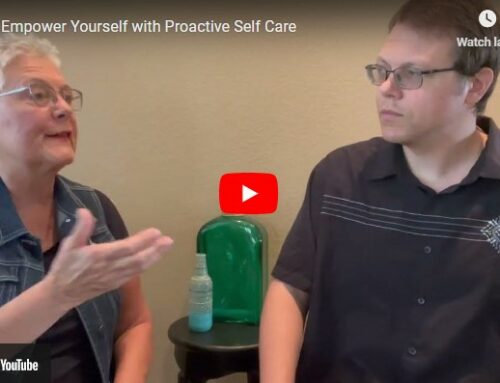Depression and other mood disorders can sometimes be linked to a Vitamin D deficiency.
Transcript:
Let’s talk today about vitamin D and its effects on our body.
Vitamin D affects our mood, it affects our immune system, it affects our sleep, and it affects calcium absorption. Calcium absorption is important for strong bones and teeth.
Our bodies need sunlight in order for our bodies to make vitamin D. I like to check vitamin D3 levels when the person has had a low exposure to sunlight or they may live in an area that’s overcast.
There is something called Seasonal Affective Disorder (SAD) in which the person experiences fatigue, poor concentration, loss of interest in life, and even carbohydrate cravings and weight gain.
I like to do an annual blood test of vitamin D3 on all of my patients. Research shows having a vitamin D level below 20 ng/mL may raise our risk for depression by as much as 85%, compared to having a vitamin D level greater than 30. The optimal vitamin D3 level should be between 60 and 80.
Let me share with you a clinical example. I had a middle-aged woman that came in with a diagnosis of depression. Although she lives in sunny Arizona, she was avoiding the sun.
We did a simple vitamin D3 test first to check her levels and her results were 14 ng/mL. We treated her for low vitamin D levels and her symptoms improved within a couple of months. And her vitamin D3 level went up from 14 to 50 ng/mL.
My treatment suggestions are sunlight, foods high in vitamin D such as tuna, salmon, and eggs. Mushrooms are high in vitamin D, as well.
We also can use supplementation such as vitamin D drops, which we can put under the tongue, vitamin D capsules, and there’s even chewable vitamin D3.
The supplementation dosage depends on your test results.
Another treatment is full-spectrum light therapy. Now this is being recognized by some insurance companies who may cover some of these expenses for the full-spectrum light therapy.
Just to illustrate how sunlight affects Seasonal Affective Disorder:
When we’re in our room at night, we have the shades pulled down, there’s very little light coming in, and what happens is that the optic nerve senses that there’s no light and it causes the pineal gland to start producing melatonin. Of course, melatonin helps us to feel groggy and go to sleep and sleep during the night. That’s why it’s important to have the shades pulled down.
Now during the day, when you have sunlight–let’s have an illustration here–you have sunlight and the optic nerve senses the sunlight and what it does is, it causes the pineal gland to turn off the melatonin. So you feel awake and feel like doing things, and get up and go.
So when people live in a place that’s overcast most of the time or they avoid sunlight, they can feel groggy and tired and fatigued and no motivation or drive. That’s why it’s so important to get sunlight so we can avoid this Seasonal Affective Disorder.
Are you curious about how vitamins and minerals affect your body and what food they can be found in? Email us your questions! Let me know what vitamins or minerals you’d like to know more about: [email protected].
Remember: we support our bodies with the knowledge that we implement!
See our Health Videos/Articles Index Page for much more information on a variety of health topics!





